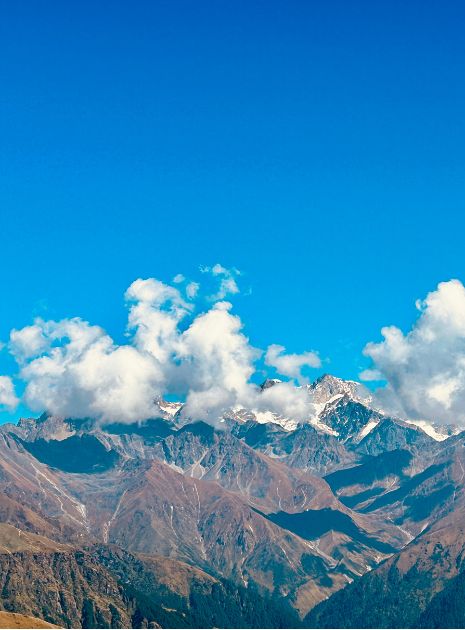Tyuni
Explore Tyuni in Dehradun district – the cultural center of Jaunsar Bawar, home to rich festivals, the Tons River, and the historic Hanol Temple. Discover its farming life, traditions, and deep tribal roots in Uttarakhand.
Tyuni (त्यूणी), or Tiuni (तिऊणी), is something more than a location on the map of the Dehradun (देहरादून) district. It is the center of the Jaunsar Bawar (जौनसार बावर) tribal area in north Uttarakhand. Located on the banks of the Tons River, this tehsil is the frontier after which Garhwal ends and Himachal begins, a location with deep, ingrained traditions and strong charisma.
Tyuni is the biggest town located in the Jaunsar Bawar tribal region. It is bordered by Chakrata (चकारता) in the south, Uttarkashi (उत्तरकाशी) in the north, and the Shimla (शिमला) district of Himachal Pradesh (हिमाचल प्रदेश) in the west.
The area has been inhabited by a tribal lifestyle. These festivals like Maroj (मरोज), Jagra (जगरा), Bissu (बिस्सु), Budhi Diwali (बूढी दिवाली), and Jakholi (जखोली) have been observed in the area for centuries. They aren’t simply occasions, they’re approaches of keeping identity and reminiscence alive.
Tyuni is around one hundred and seventy kilometers from Dehradun town, sitting calmly alongside the Tons River. It’s placed on what turned into National Highway 707A, a road that winds its way past Chakrata, Mussoorie (मुसौरी), and closer to Tehri (टेहरी).
You’ll recognize you’ve reached a point where the air shifts, the river widens, and wood homes begin to dot the road.
The Tons River cuts through pine ridges and farmland. It’s not a wild river here, just wide, steady, and always present.
Farming is the center of daily life. Rice and wheat are the main crops. You’ll see families working fields shaped like staircases, following seasons passed down through memory.
Tyuni has the basics of a girls’ inter college, a degree college, small shops, a post office, and a bank. There’s a roadside dhaba for meals and a fuel station for travelers.
This isn’t a place built for outsiders. It works for its people.
The people here speak Jaunsari (जौनसारी), a Western Pahari dialect. It is shared with neighboring towns like Chakrata and Kalsi. Hindi is used in schools and offices, but most daily talk happens in the local tongue.
The mix keeps the people grounded, connected to both their tribal roots and the wider state.
This is where Tyuni shines. Each season brings a festival:
These festivals aren’t performances. They are lived shared by families, watched by elders, and danced by children.
About 16 kilometers from Tyuni stands the famous Hanol Temple (हनोल मंदिर). Dedicated to Mahasu Devta, it was built in the ninth century in a wooden stone architecture unique to this region.
Here, people still follow old ways. Disputes are settled by asking people to drink sacred water. Rites happen quietly, without show. The temple isn’t just a place of worship; it’s part of daily life for many in the region.
Tyuni is connected by a mountain road that used to be called Highway 707A. It links to Chakrata, Tehri (टेहरी), and Mussoorie. Shared jeeps and small buses connect it to Dehradun and nearby towns.
The roads are winding and sometimes rough. In monsoon, landslides and delays are possible. But for most of the year, they hold steady.
If you want to see culture in action, come in autumn.
Talk to locals — their stories carry more history than any guidebook.
If you’re curious, try speaking a few words of Jaunsari. Even a greeting earns a smile.
Tyuni isn’t a tourist town. It’s a real place, with real people doing real things. Life moves at its speed, and festivals aren’t staged, they’re felt.
If you want lights, crowds, or planned attractions, you might not find them here. But if you want a place where culture is lived quietly by the river, Tyuni will welcome you in its own way.
| All Sub Districts | ||
|---|---|---|
| Kalsi | Rishikesh | Tyuni |
| Vikasnagar | ||

Uttarakhand is not simply another country. People here name it Devbhoomi (देवभूमि), the Land of the Gods. And it feels that way. Rivers begin right he......
See Details